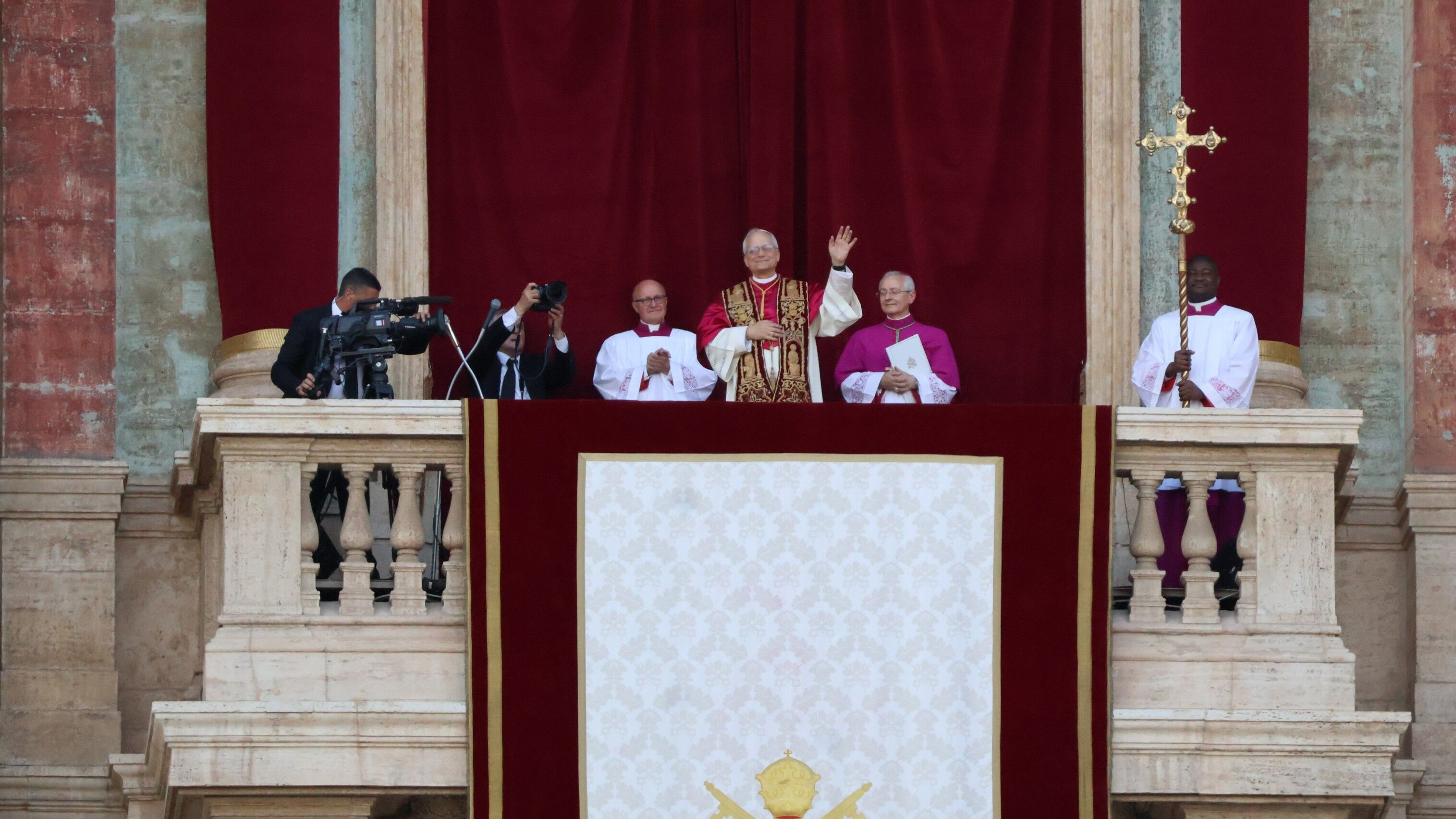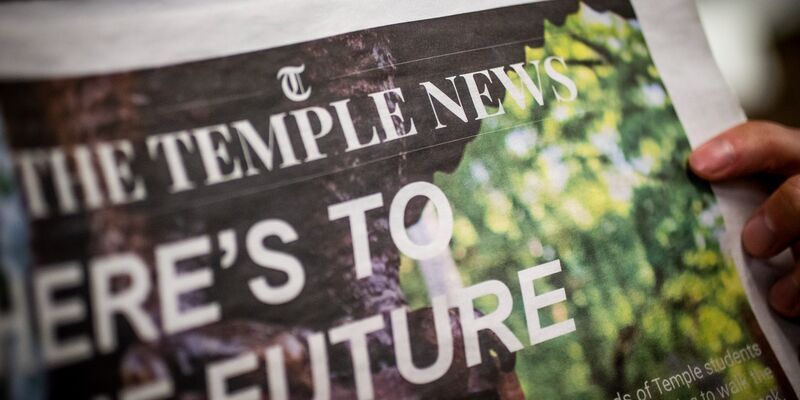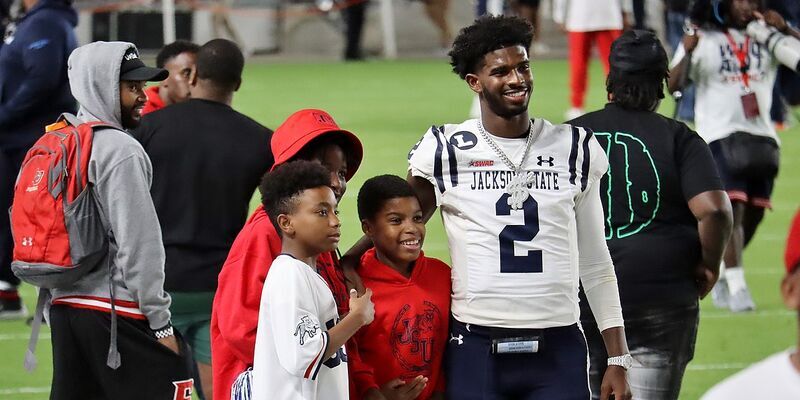Who is Pope Leo XIV, and how was he chosen?
Frank Dabell, a professor of art history at Temple University Rome for over 20 years, discusses Pope Leo XIV and the Vatican’s process for electing a new pope, known as the papal conclave.

On Thursday, May 8, white smoke billowed from the chimney of the Sistine Chapel, signaling the end of the papal conclave and with it, the election of a new pope. It was announced shortly after that Robert Prevost, born in Chicago, was elected as the new head of the Catholic Church. His papal name will be Pope Leo XIV.
Pope Leo XIV is the first pope from the United States, and he joins his predecessor, Pope Francis, as only the second pope from the Americas. Because of that distinction, and thanks to the 2024 hit film Conclave, there is great interest surrounding Pope Leo XIV and the time-honored tradition for electing a new pope.
When the white smoke was spotted, Frank Dabell, professor of art history at Temple University Rome, rushed to the piazza outside St. Peter’s Basilica to witness the proclamation of the new pope. An expert in Renaissance art, Dabell grew up in Rome and went on to be a fellow at the Metropolitan Museum of Art in New York before returning to teach at Temple Rome in 2003.
Here is what Dabell had to say about Pope Leo XIV, the challenges he will face during his papacy and the process for electing a new pope. 
Temple Now: How does the conclave process for electing a new pope work?
Frank Dabell: The pope is voted on by the College of Cardinals. There is a democratic element to it, and democracy, as we know, is not a perfect system, but there needs to be a two-thirds majority for a new pope to be selected. And the only limit to that is age—cardinals over 80 cannot vote. So there are 251 cardinals, but only 134 of them can vote. Cardinals are appointed by the pope and serve for life. It’s like having the Senate in Washington vote on something, you have to get a majority. And the pope is elected for life, so they could be 99 when they die. Recently, we’ve seen a variation in that theme, which is that popes have resigned, or retired, or become very sick. That also happens, and there’s a system in U.S. politics and many others for that, precisely, to happen. That’s why you have a vice president if the president is incapacitated.
TN: Has the conclave process changed over time?
FD: A thousand years ago, which is nothing in Rome time, they did it by what was called acclamation. People would say ‘we acclaim you.’ Just a popular, wise, good individual would be appointed. As the church expanded, politics came into play, and so a voting system was put in place.
TN: What do we know about the newly elected Pope Leo XIV?
FD: First of all, he’s 69 years old, which is relatively young. Secondly, he’s from, I would say, the Americas. The media will jump on the fact that he’s American, because he was born in Chicago. But does that make him U.S. American? The question is not really about nationality, as in which passport do you have. He hasn’t spent a lot of time there. He’s spent many years in Peru doing missionary work, and very successfully so. And he’s very familiar with international politics.
The negative reactions, if any, are that ignorant people around the world immediately think that because he’s an American pope he’s somehow associated with American politics, which is simply untrue. He is an appointee of the late Pope Francis, who was a man of great courage, but also a man of peace. And the first thing that Pope Leo talked about was peace, and building bridges. The Vatican is a system of administration and bureaucracy, much like in U.S. politics, where you have a say, and you have a more important say the closer you are to the top. You could be a member of the cabinet and not have served ever, politically. You’re just somebody who’s been appointed by the president. That’s a good thing if the president is somebody who seeks the good of the nation, and he appoints people who do good work. And that’s what Pope Francis did. Something like 80% of the cardinals now in power were appointed by him. So, we get a sense that the general line of humanity, and issues like poverty, the disenfranchised and world unity, things Pope Francis talked about, are uppermost in this pope’s mind.
TN: What challenges will Pope Leo XIV face during his papacy?
FD: I think the same as Pope Francis, which is the recurrence of a divisive and divided planet. The world has always been divided over many issues, but the world today is being very divisively run by many people in many countries. The pope must take the pulse of world politics and give people the courage to find solutions, which is very difficult.
The Vatican has historically played a great role in diplomacy around the world, even behind the scenes. You see, everybody likes everything to be transparent now, but some of these things have to go on behind the scenes. It’s not about the media. It’s about coming to agreements, like families sorting out their business in private. A lot of wisdom and experience goes into that.
So, the challenges Pope Leo will face are very great, but if they’re addressed by somebody who has a broad view of humanity and wants to leave the world a better place, as opposed to somebody who wants to insist on a particular political line, he’ll prevail.
TN: Do you have anything else to add?
FD: What I love, if I may add a little bit of art history, is the idea that the pope is elected under that famous ceiling in the Sistine Chapel with Adam and God pointing at each other and the creation of humanity. The next scene is the one in which Adam and Eve are tempted and then expelled from the Garden of Eden. It’s not so much about disobedience as it is free will. And free will feeds directly into the election of a new pope. The College of Cardinals were free to make the right decision, and we hope they’ve made the right decision. We hope they’ve voted with their conscience, about humanity and not just about questions of theology or orthodoxy, which people are, I think, less interested in now than the basic ones of poverty, unity and equal opportunities.


